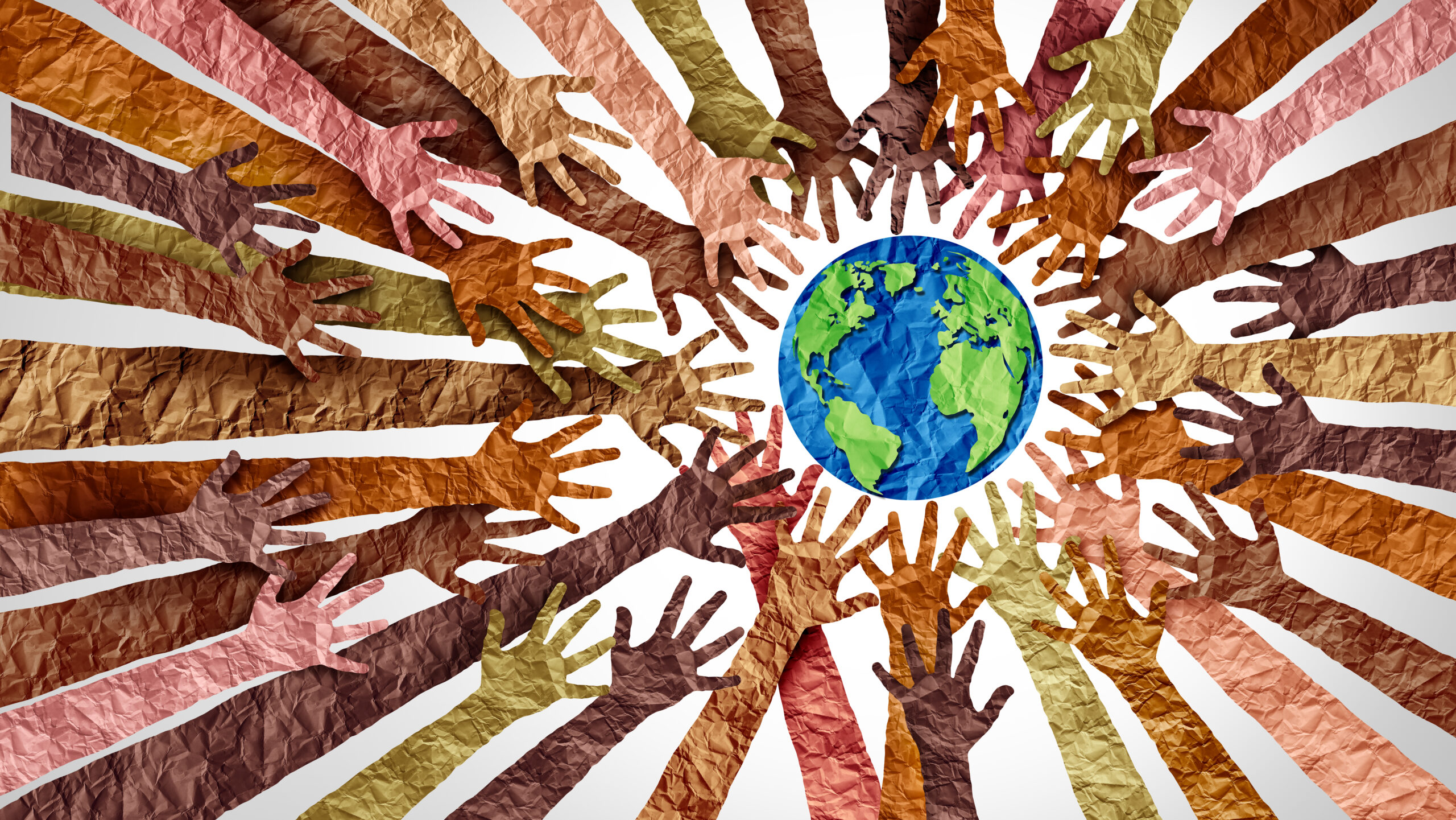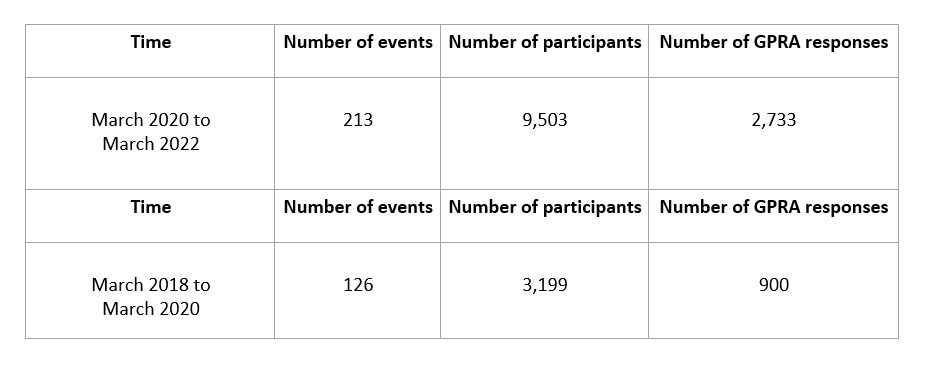By Steven G. Steine, MA, CADC, Project Manager at the National American Indian and Alaskan Native Addiction Technology Center, Iowa College of Public Health

In January 2020, a few isolated cases of the COVID-19 virus were reported in the U.S. The pandemic had begun, and we all watched as it quickly spread across the country in the months to come. It was March 18, 2020, and our National American Indian/Alaska Native Addiction Technology Transfer Center had just finished planning an important face-to-face cultural event scheduled to begin two days later in Denver, Colorado. The call came through to our director from the University of Iowa; all face-to-face events had been canceled indefinitely. Stay-at-home orders would soon follow. We were to work from home until further notice.
Our National AI/AN TTC Centers were, at that moment, faced with a difficult decision. How do we mobilize all our resources, technical assistance initiatives (TA), training events, and webinars? How do we make sure we support tribal behavioral health (BH) professionals and Native communities in ways that are responsive to our Native colleagues’ needs? We also wanted to be mindful that we weren’t providing services they did not request.
Aware of the health disparities reported in Native communities, we feared this pandemic would hit these communities hard. We decided to increase our efforts to listen to our colleagues and initiated weekly listening sessions for BH professionals.
In April 2020, the National AI/AN TTCs began providing myriad special virtual events across our departments (PTTC, ATTC, MHTTC, TOR, and K-12) inviting American Indian and Alaskan Native tribes from around the country to connect with colleagues, peers, and others, to share their experience, strength, and hope in the ominous shadow of a worldwide pandemic.
From that moment forward, our Center shifted all its events to a virtual platform. We then watched as tribe after tribe closed their borders and prohibited all further ceremonies and gatherings indefinitely. As the sickness and death toll of Native communities began to rise, we realized that through our weekly listening sessions we were able to offer supportive virtual events, and the participating tribes were able to provide strength, hope, and collaborative guidance to each other. After several months of listening sessions, we got an important note from a tribal leader, who thanked us for letting him and his colleagues be Native through this crisis by providing a safe and consistent venue to openly discuss culture, ceremonies, beliefs, and our way of life.
Here is a small sample of some of the data surrounding events that were provided during this time.
The tables below illustrate the numbers of events (including training, meetings, and technical assistance provided by the ATTC department (not including the MHTTC, PTTC, TOR, or K-12 departments) from March 2020 through March 2022.
The second table shows the number of events/participants and GPRA responses from the previous two years, March 30, 2018 to March 30, 2020.

After two years of pandemic restrictions, some Tribes have begun to open their borders. Ceremonies have started up again. We’ve even completed face-to-face events, trainings, and conferences in the past few months. However, our virtual platforms and events remain a significant aspect of our training and TA milieu.
As 2022 moves into spring, summer, and fall, we have begun a slow transition back to face-to-face events.
COVID-19 has forever changed how we work with each other, our regional TTC offices around the country, and those in need of assistance. Moreover, it has opened new doors, new connections, and forged deep relationships with many of the Native communities. Relationships that may never have been possible without the ability and resources to connect with them virtually.
Looking ahead, we embark on a new challenge; how to find a balance between face-to-face events and maintain effective virtual platforms in a responsible and meaningful way for those in need of our support. We continue to conduct GPRA and Qualtrics surveys to gather feedback from tribal communities as well as regular consultation with our advisory board members. Our staff is working diligently to see that this happens, and together we can move forward, into 2022 and beyond.
From all of us here at the National AI/AN ATTC at the University of Iowa: Toks a Ake (Until we meet again), stay safe, stay healthy, and stay connected.
 About the author: Steven G. Steine earned his B.A. in Communications (1994) and his M.A. in Substance Abuse Counseling Program (1997) from the University of Iowa. He has been a certified alcohol and drug clinician with the State of Iowa since 1997. An Iowa native, he has worked in the behavioral health services and non-profit sector for 23 years, providing both direct patient care, as a clinician, and supervision as a clinical manager. Since January 2019, he has worked for the National American Indian/Alaska Native Addiction Technology Transfer Center at the University of Iowa. He has over 34 years in recovery and has committed his life and profession to helping others in the recovery process.Email him here.
About the author: Steven G. Steine earned his B.A. in Communications (1994) and his M.A. in Substance Abuse Counseling Program (1997) from the University of Iowa. He has been a certified alcohol and drug clinician with the State of Iowa since 1997. An Iowa native, he has worked in the behavioral health services and non-profit sector for 23 years, providing both direct patient care, as a clinician, and supervision as a clinical manager. Since January 2019, he has worked for the National American Indian/Alaska Native Addiction Technology Transfer Center at the University of Iowa. He has over 34 years in recovery and has committed his life and profession to helping others in the recovery process.Email him here.